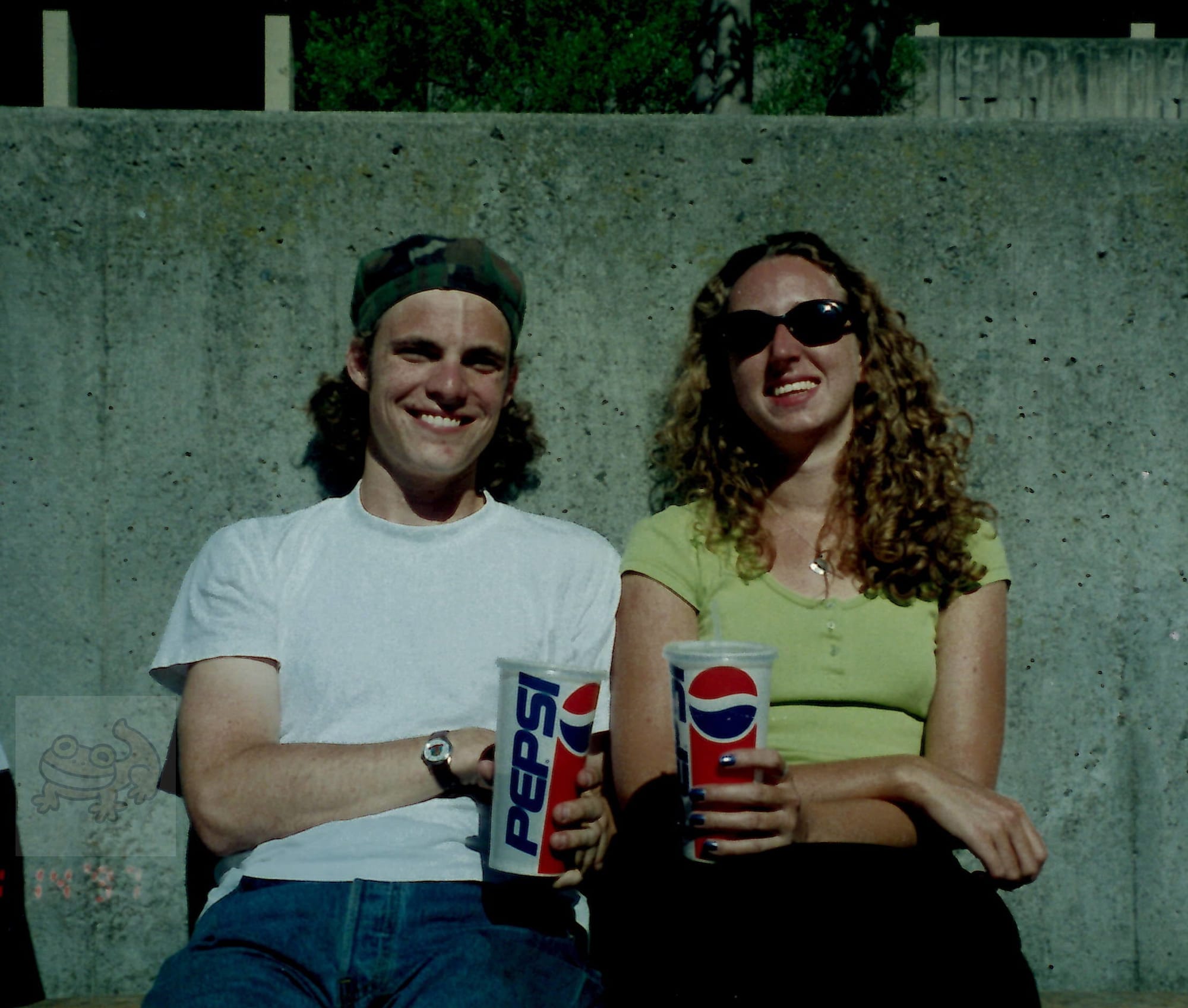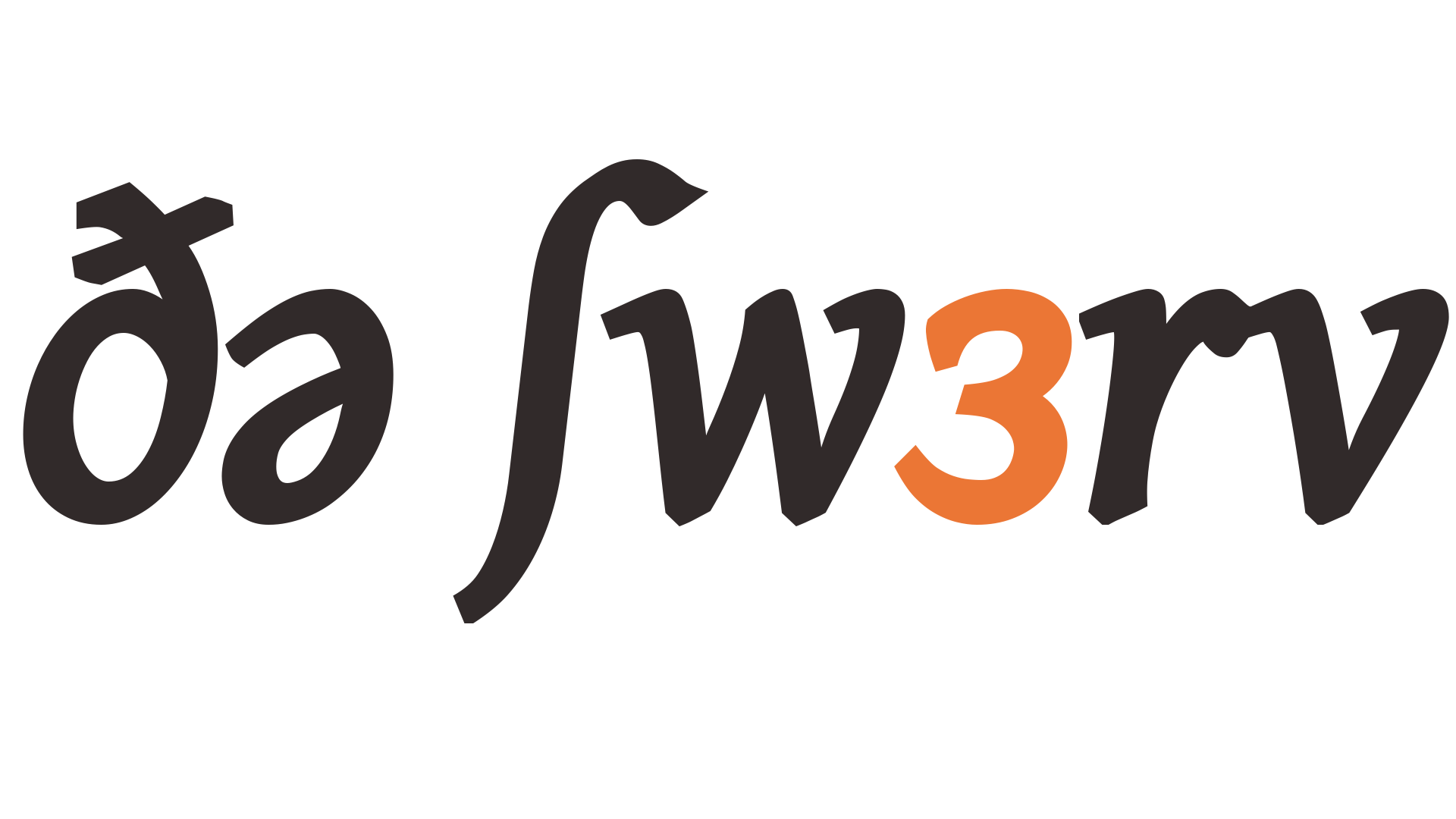Imposter syndrome

Some nights—two and a half decades after graduating college—I still have nightmares that I’m late for a final exam. Some days, I wonder if I have a degree at all.
I’d like to think that my imposter syndrome is somehow special or justified. I imagine that everyone else is just as infuriated that imposter syndrome is ubiquitous. Surely, I don’t deserve what life has given me, uniquely.
How did I get here?
Back in college—the real one, not the one that haunts my dreams—there were a few harrowing moments when it felt like I was on the verge of washing up for good.
I failed freshman calculus. I was a physics major at the time. Perhaps a math-heavy discipline wasn’t where I was meant to be.
My freshman-year academic advisor accused me of being lazy. Because his condescension is etched permanently in my brain (voice, tone, sagging cheeks, everything), I can quote him directly: “It sounds to me, Jorgensen, that you don’t want to work.”
Even when I was doing well—my second semester of chemistry, thanks in large part to my awesome dorm-mate (Hi Karen!)—my final paper lost two pages on its way to my TA’s desk (the stapler missed? sabotage? I have no idea). My TA graded me down several points for coming in under the word count, then fucked off to Spain. I tried to get my grade changed after emailing the missing pages in, but the professor of a 500-student class didn’t have summer office hours much less any fucks to give.
I was at a school where for the first time it felt like I was the dumbest person in the room. In the beginning, I loved just being a face in the crowd. But it seemed that the price was that not only was I not special, I wasn’t any good either.
In the intro to electrical engineering lab, I couldn’t get a goddamned microchip to work on my final test. I tried every one in the tray. I felt the TA, who did not communicate well in English, hovering over me, set to flunk me right there.
In a different math class, I lost points on a timed oral proof because I got interrupted too many times and stumbled before I could finish. Seriously, I needed out of math. Who knew that public speaking was a prerequisite for calculus?
I didn’t understand the computer science concepts of recursion and pointers no matter how much coffee I drank. The whiz-kid at the end of the hall shook his head—this was so easy for him. There must have been a mistake at admissions.
Why are we here?
Despite all the pain and frustration, somebody usually had it worse than I, at least at any given moment.
A guy in our dorm was really good at making fake IDs, but not at passing classes. After flunking out, his side hustle kept him afloat for a while, though I don’t know what became of him later.
The bus didn’t come one day, and thus my lab partner was late for our oral presentation in front of the EE professor. (I’m beginning to think the university should have had public speaking as an admission requirement!) He ran uphill to the EE building, up the stairs, huffed into the last five minutes of our allotted fifteen, and did what damage control he could. I did not cover well in his absence.
The sociopath in our dorm really liked to get free stuff, which was generally given out by desperate psych majors in need of subjects. He had no qualms about showing up to their dinky sessions ostensibly to learn conflict resolution, but he messed with their heads while enjoying his free smoothie. This is unofficially how Freud came up with the Oedipus Complex hypothesis.
To say nothing of the classmate who just walked out on the EE final despite the all-nighter we had pulled off together to be ready. He gave up. Poor guy.
How I got here
Thanks to techniques I learned later in life through cognitive behavioral therapy, I can appreciate many of these incidents in a new light now—though not all; some things are just terrible and all we can do is abide.
That freshman year calculus course I failed? Well, I wasn’t the only one. Failing all your students is considered a no-no even in the sadistic math department. That teacher was banned from teaching any more lower-division classes. The university still extracted more money from me, though, when I had to make the course up over the summer.
I changed majors away from physics, obviating the need for more math and chemistry. That meant I only had to fake my way through computer science and electrical engineering now.
I didn’t fail the intro to EE lab. My incommunicative TA used hand gestures to help me get the one non-blown-out microchip to work.
The terrible academic advisor, however, was inexcusable. He made me feel so bad that I complained to my admissions advisor. Boy did I learn what a terrible track record he had. They still let him teach courses, too! An engineering and writing course at that, which I was told he spent the whole time telling the class what a bunch of losers they were when he burdened them with busywork and nigh-impossible assignments.
When I read his obit in the alumni magazine, I toasted his demise. While the university never fired him (tenure something something old white male), I got a new advisor who could say my first name. He got me into classes that helped me recalibrate my academics into something sane. He (and others) made sure I’d never have to see the bad advisor again.
My friend (hi Mitch!) eventually beat pointers into my head over several packs of cigarettes at 2 a.m. while doing our CS homework. I even went on to teach programming at the self-paced center with him on campus.
So I wound up graduating college thanks to lots of people having my back, including me, despite me. For all these people, I am grateful. Some I remembered to thank at the time. Others I forgot to, or recognized much later.
The crappy advisor did recognize something in me though, loath as I was to admit it. I didn’t want to work. Not like he wanted me to, anyway. If I did it his way, I’d end up like him, a miserly old white male. The world has enough of those.
Occasionally, it’s worth it to sit in the plaza with your bestie and abide.

Where am I?
My college experience still feels like a long series of faking it until I graduated. As does my career afterward. And I’m okay with that now. From what I’ve learned, a lot of people (70% by some estimates!) feel the same way. CBT helps me find a way through when it gets me down. And my friends and family are there on the other side to catch me.
Besides, the smartest people at my school didn’t necessarily fare better (or worse) after graduating, which might be the only thing Facebook is good for —stalking old acquaintances and making sure they’re not too successful.
Thank you for reading The Swerve. This post is public so feel free to share it.
I am on the Internet. Can you believe it? My favorite place is Mastodon. But I have Instagram as well.

